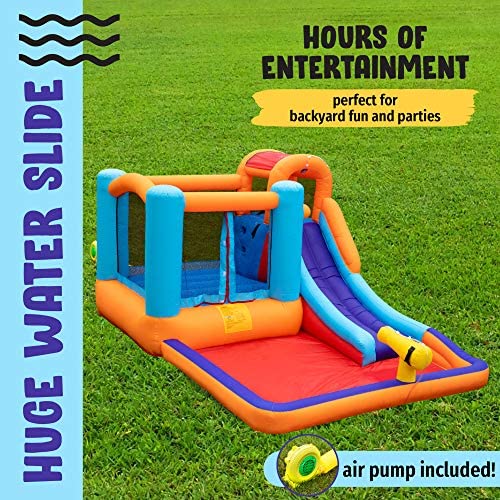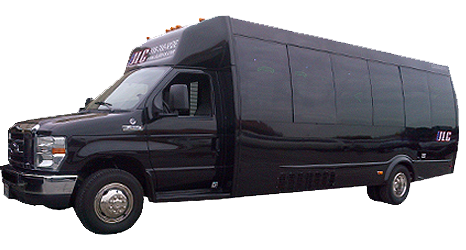
How do you put up a bouncehouse? This article will explain the basics of setting up a bounce house, including safety considerations and tethering. It also covers cleaning the blower. We'll assist you in making the process as painless as we can. Now you can enjoy your bouncehouse with the kids. This article is written with the safety of your guests in mind.
Inaugurating a bounce house
A bounce house is a great addition to any backyard party. Bounce houses are a fun way for kids to get outside and have fun. Bounce houses can be used for fun activities and are safe for all ages. They're also great for outdoor events such as parties.

Before setting up your bounce house make sure the floor is level. You can also use water weights or sandbags to keep the bounce house steady. To prevent the bounce house from tipping over or blowing away, stakes can be used to secure it.
Safety considerations
You should ensure that your children are safe when you set up a bouncehouse. Safety is paramount. You should limit the number of children allowed to use the bounce house at once. Each child must be accompanied by an adult. Only one child should be allowed on the bouncehouse at a time. Also, make sure that the bounce house is set up on a flat surface without any obstacles.
Weather is another important consideration when building a bounce house. A bounce house that is windy can blow off easily. You should place the bounce house on grass. Even though the bounce house itself is made of plastic, the plastic can be punctured by rocks, sticks, or other obstacles.
The blower needs to be cleaned
Maintaining your bounce house is as simple as cleaning the blower. You may have less air coming into your bounce house if you get too much dust or debris. The blower should be cleaned as frequently as necessary. After each use, the blower should be cleaned. You can clean the blower with a brush, sponge or shop vac.

Make sure the blower cords are not damaged. If you notice a frayed or damaged cord, take it to an authorized service facility for repair. You should not run the blower cord underneath furniture or appliances as this could cause it to get wet. Avoid dipping the motor in water. Don't let it run during cleaning. Use a blower with an integrated solid-state speed control device to lower the likelihood of electroshock and fire.
FAQ
Do I really need my credit card number to shop online?
Registering your credit card is optional. You may want to register your credit card if you would like to receive discounts and special offers. It is a good idea to verify your identity with your bank.
How do I avoid getting conned online?
It is vital to remain vigilant when buying online. Before you make a purchase online, be sure to read reviews and review the feedback of customers. Also, never send sensitive financial information via email. Instead, go to a secure site like PayPal. You can rest assured that your information will be safe by using this secure site.
It is better to shop online with credit cards than without.
Credit card companies offer numerous benefits like rewards programs, cash back and free shipping. You also have protection from fraud. There are no fees associated with them, so they're worth considering over debit cards.
Customers who are unable to pay the balance on time also have flexibility with credit cards. They also allow you to make purchases without worrying about how much money you have left in your account.
Why shouldn't I believe the sales hype in shops and online shops?
Sometimes, sites will overstate the starting price of an object to make you appear to be saving more. You can simply add the item to your cart so that it doesn't go missing. Finally, you can do a quick Google Search for the designer's name as well as the product type. It may turn out that the incredible deal you thought was yours is actually quite reasonable. You may even find that same item for less.
Are rewards and insider programs worth the effort?
Rewarding yourself with great rewards is great but not always worthwhile. Make sure you get value for your money if you decide to sign up for an online program. You should know how much money and time you are spending on it.
If you are signing up for a rewards card just because it has a good signup bonus, be careful. Sometimes these signup bonuses are not worth the hassle.
Ask yourself why you are interested in joining rewards programs before you sign up. Many people join because they see their friends doing it. You may not be interested in the services or products offered by the company if this is the reason you quit.
Are there any other things I should know when buying clothes online?
Before you buy clothes online, there are many things that you need to know. First, determine your size. This may seem obvious but many companies don't offer this information, so you might have a hard time guessing.
Consider shipping costs. Shipping fees vary depending on the type of item you order. Make sure you know exactly where the package is going. Some items ship directly from manufacturers while others are shipped through third-party warehouses. This can alter delivery times.
Read carefully reviews. There are many instances of poor experiences. Do not let another person's bad experience affect yours.
Statistics
- Last Black Friday, I bought a stove from Lowes at 40% off, receiving 24 months of interest-free financing (from Lowe's). (meetfabric.com)
- All items on AliExpress have an estimated delivery time on the product page, and it's usually anywhere from 20 to 60 days. (makeuseof.com)
- According to the Federal Trade Commission (FTC), online shopping was the fourth most common fraud category for consumers as of February 2022.5 (thebalance.com)
- Your Online Purchases 79% of Americans purchased goods and services online in 2018, which is expected to exceed 90% in 2023. (meetfabric.com)
External Links
How To
How to shop online safely
Online shopping can be one of the most convenient and cost-effective ways to purchase goods or services. However, this convenience comes at a price. Online shopping has many advantages, but there are also risks. Identity theft is the most serious risk. Identity theft poses the greatest risk. Identity thieves may use your personal data (name and address, credit card number, credit card number, etc.) to steal money from your account or obtain fraudulent loans against it. Your stolen information is then sold on the black marketplace. Here are some tips for staying safe online.
-
Use a secure website. Most online stores offer free SSL encryption to protect customers' information. You can only see the information that you entered, such as names and addresses or credit card details. This prevents others from seeing what you have entered. Check that the certificate has been issued by a recognized CA before you decide which online store you want to do business. When you browse the web, look for a green padlock icon at the URL bar.
-
Never give your password away. When you sign up for your first account, you will receive an email asking to confirm your username and email address. These credentials should not be shared with anyone. Keep them safe! If someone takes your wallet, they may also have access to your accounts. Instead, save them on your personal computer. Your passwords should be changed at least every three to four months.
-
Keep track on your orders. You should keep track of all the places you send items, whether you are sending them to yourself or others. Many people fall for the trap of thinking they have sent something to them, but in reality it was sent from another place. Always check the tracking number before you pay for shipping. You should never ship anything without proof of delivery. If you are not satisfied with the service, contact the company immediately.
-
Know who you're dealing with. Many websites will ask you to provide sensitive information such as your full name, date of birth, Social Insurance Number, and bank routing number. These details will help identify you, so it is important to be cautious about giving them out. Google "what information does a website need" to find out if it is. You'll find many solutions.
-
Be wary of pop-up windows. Many websites will bombard you daily with pop-ups offering special offers, discounts, and other products. Some of these ads may seem legitimate, but others are designed to trick you into revealing private information. For example, a fake antivirus program might request your credit card number, social insurance number, and banking information. Never click on suspicious links to avoid being tricked.
-
Beware of phishing scams. Phishing scams include hackers pretending to work for reputable organizations in order to get financial information from consumers. Phishers will often send emails that appear to come from banks and retailers encouraging customers to log into their accounts and update any information. The hacker can access your finances once you have given your personal information. Hackers have the ability to empty your bank accounts or transfer money between accounts. You have many options for identifying a scam email, including How to Spot Phishing Scams.
-
Do your homework. Make sure you read the fine print before agreeing to a deal. You must understand the terms and conditions before you sign any contract. Take the time to review all terms and conditions carefully. It's important to avoid hidden fees and charges when trying to save money.
-
Look around. Do not be afraid to shop around. Compare prices across many different websites until you find the best price. When ordering multiple items, you can also compare shipping costs. Shipping rates can vary widely depending on which website is used. Fast shipping is worth the extra cost.